臺灣特色茶國際證照班
臺灣特色茶國際證照班
Certificate for International Certificate Class of Taiwan Specialty Tea
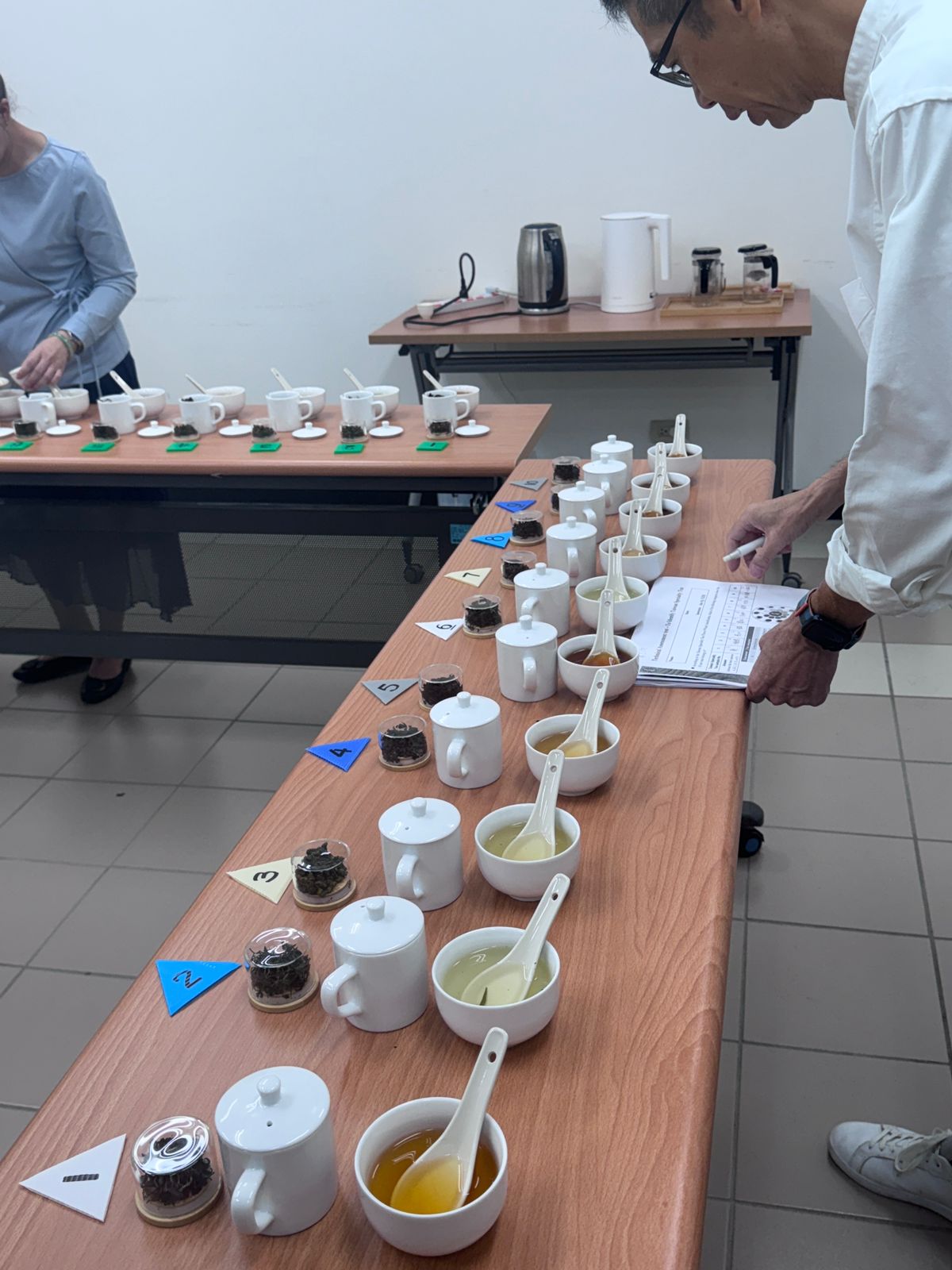
This picture highlights one of the most memorable moments from this class activity. It was fun learning about the different types of ten teas, especially as someone who comes from an island where we do not grow tea trees. Thank you, Mr. Alex, Dr. Kuan, and everyone else who gave me this incredible opportunity to experience such a once-in-a-lifetime event and to earn the International Certificate of Taiwan Specialty Tea.
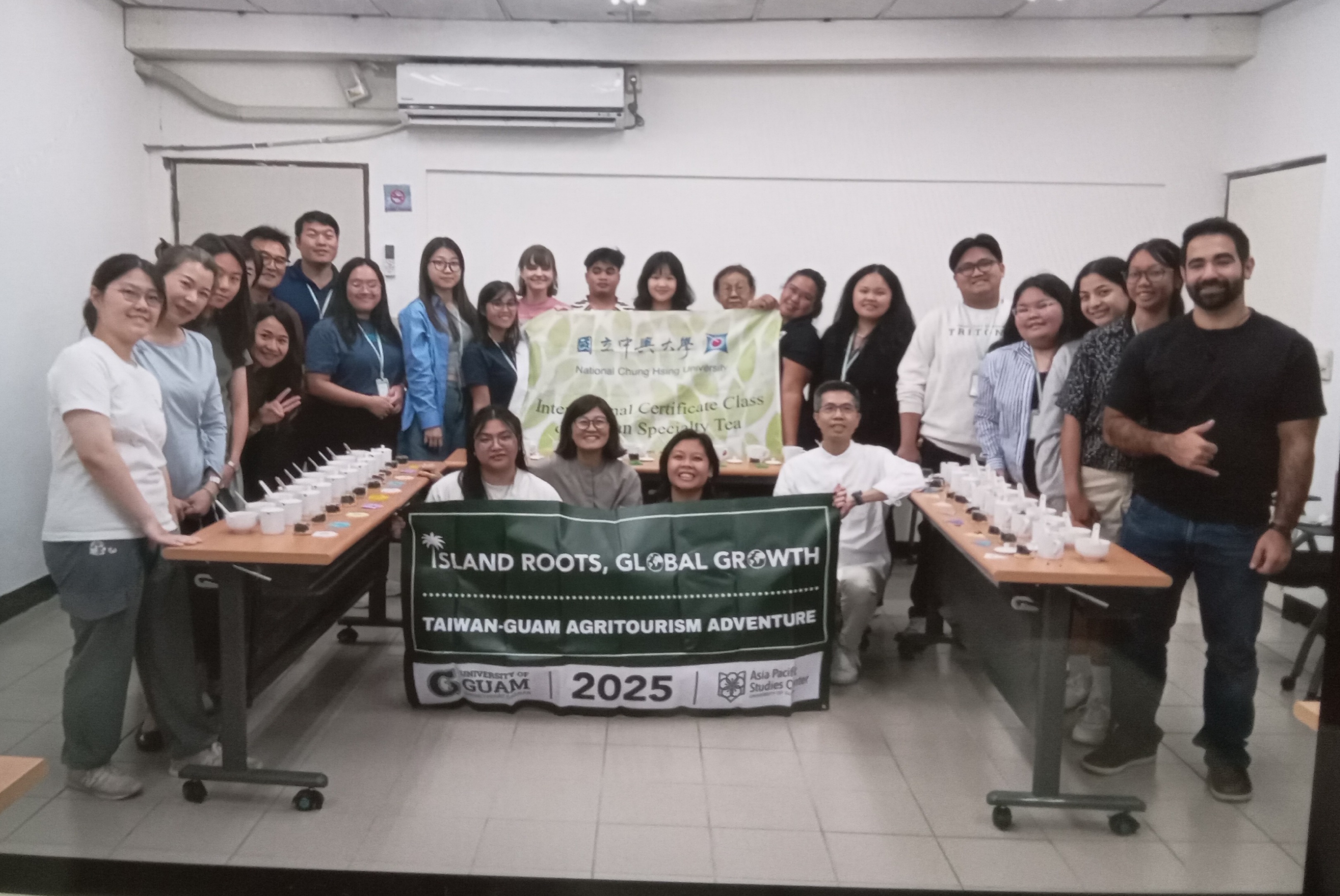
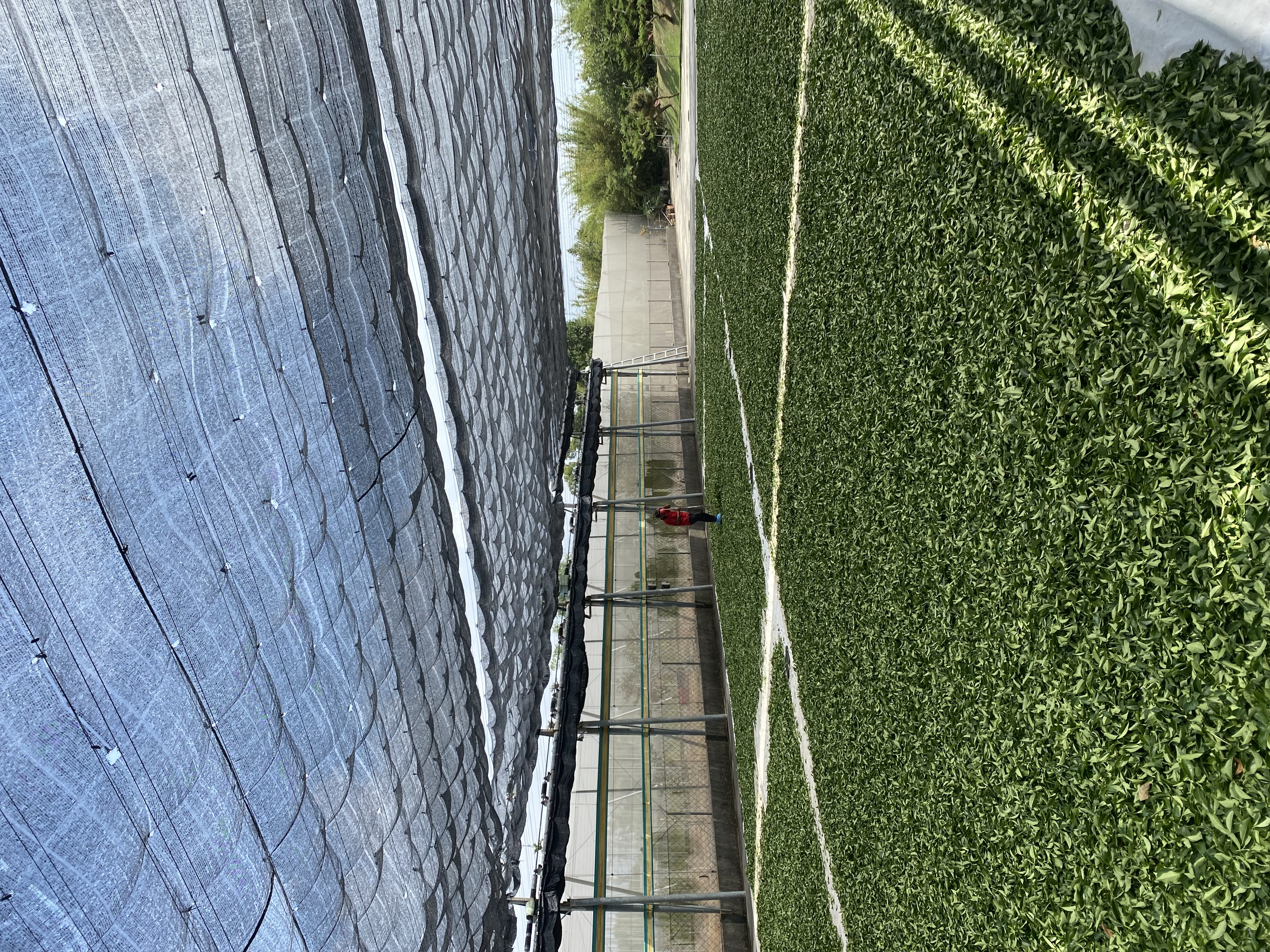
Visit to a Tea Plantation and Tea Factory in Nantou on April 17, 2025 TEA & MAGIC HAND 茶之魔手製茶二廠 We visited a tea plantation and a tea factory in Nantou on April 17, 2025. We come with Teacher Isabella for group TBRS . International class. This factory produces Taiwanese oolong tea for beverages and bubble milk tea. However, they also produce premium-grade tea, which is hand-picked. Tea used for regular beverages is harvested using machinery. Today, we observed the outdoor withering process of Four Seasons tea leaves. We also toured the surrounding tea plantation, which grows both Four Seasons and Jinxuan oolong varieties. After that, we went inside the factory to see the tea processing methods and various production steps. The factory maintains very high cleanliness standards. We were also able to smell the tea during the indoor withering process. The factory representative guided us through the tour and explained the details of tea production. Finally, we took group photos and enjoyed tea prepared by the factory. We’d like to extend our thanks to the team for their warm hospitality.
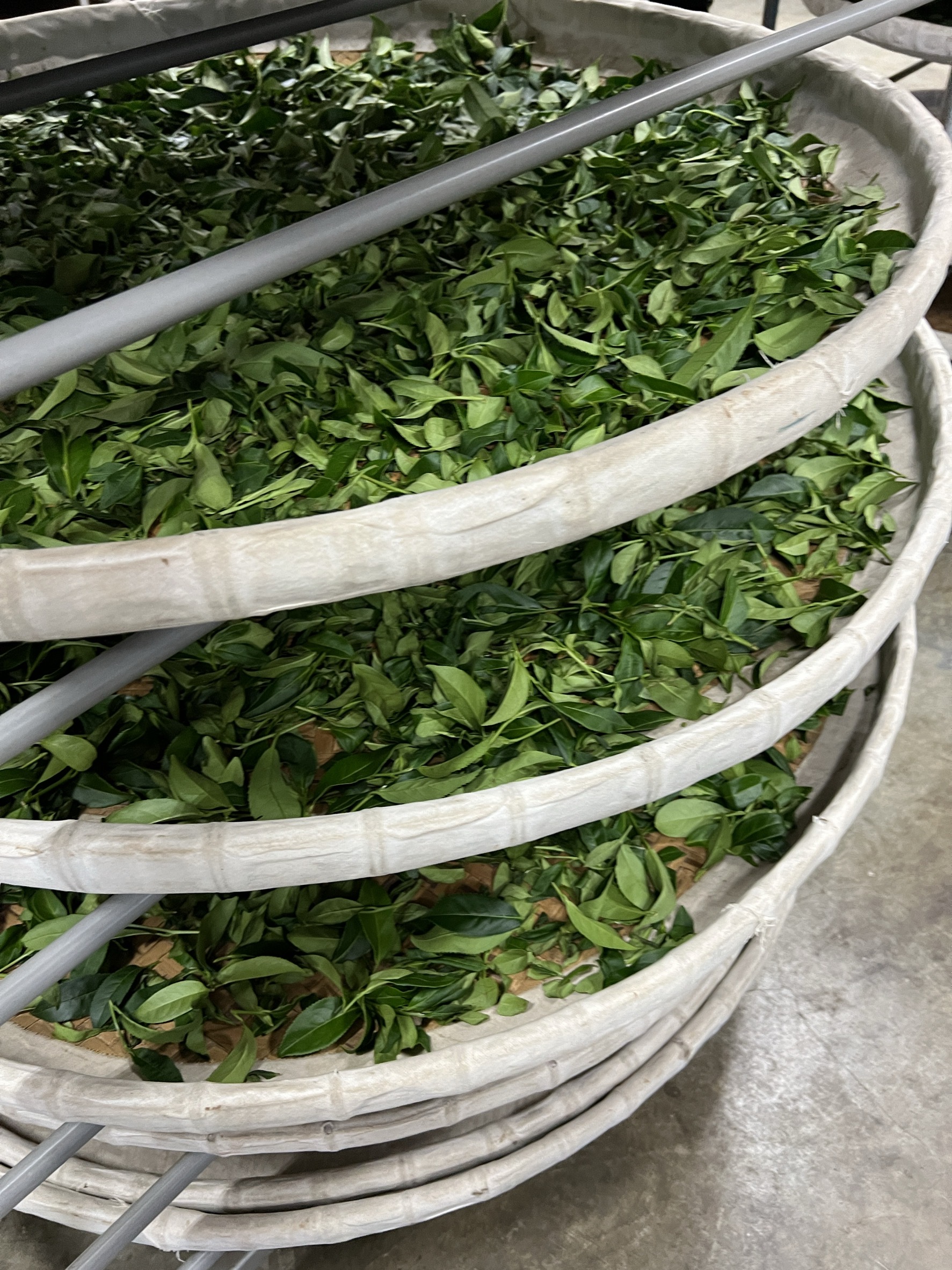
【製茶レポート台湾高山烏龍茶】 2024年4月19日〜20日 台湾で清香、球状の高山烏龍茶の製茶を学びました。 海抜2000mの山々が連なりその美しさから"台湾のスイス"と評される場所にある茶農家「清境農場」にお世話になりました。 手摘みの青心烏龍品種の茶葉を使い、高山烏龍茶(梨山烏龍茶)の製茶を一から丁寧に教わりました。 ・日光萎凋 生葉を大きなザルに広げ、天日に晒し茶葉の水分を飛ばし、発酵を促す。黒い網で紫外線の当たる量をコントロールした。 優しく裏表を返し、生葉の香り嗅ぎ、茎のしおれ具合で生葉の水分量を確かめる。 ・室内静置 ザルを棚に乗せて室内へ移動させ静置する。 葉の香りの変化を5〜30分おきに確認する。 ・撹拌+浪菁 烏龍茶の香りを決める大切な工程。 15:00ごろから1回目の撹拌開始。 葉をゆすって刺激を与え発酵を促す。 青みを帯びた香りが出てきたら、再びザルに広げて静置する。花のような香りに変化したら また2回目の撹拌をして静置する。 20:00過ぎごろ3回目の撹拌を終える。 ・殺青 23:00過ぎごろから殺青機に入れ加熱して発酵を止めた。 ・揉捻 茶葉を望月式揉捻機で揉む。 ・団柔 揉捻した後の茶葉を布で包んで絞り、丸い球状にして、回転式プレス機で揉捻する。 布を解き、茶葉の玉ときをする。 この工程を40回程繰り返しぎっしり丸まった球状の茶葉に仕上げる。 ・乾燥 茶葉を乾燥機に入れ乾燥させ茶葉の水分を抜く。 以上が台湾高山烏龍茶の製茶工程です。 一から製茶を学び感じたことは、全ての工程がとても繊細だと言うこと。茶葉が変化していく様子をしっかり観察し、変化のタイミングを逃さない事が大切なため、徹夜でしか作る事ができない大変貴重なお茶であると言うことです。 荒茶の段階で13人のそれぞれが作ったお茶を、試飲しました。同じ条件下で作ったお茶でも、1番初めの日光萎凋や撹拌、殺青の工程で生じた差が、お茶の風味に与えた影響は大きかったように感じました。製茶工程の合間時間には、質疑応答でどんな質問疑問にも答えてくださり、一度に13人でそれぞれの烏龍茶の製茶をご指導くださった謝老師、林老師、林工場長、そして、どんな時も笑顔で、徹夜明けに台湾の美味しい朝ごはんを振る舞ってくださった張さんにも、共に製茶を学んだ仲間たちにも心からの感謝を。1人ではなし得ない大変貴重な機会を頂きました。ありがとうございました。 【台湾国際評茶師初級講座を受講して】 台湾農業部『茶・飲料作物改良場』が発行する【台湾国際評茶師】認定資格講座を、第1期として東京渋谷華泰茶荘にて開催された講座を受講致しました。日本で海外の政府機関の認定資格が取得できる講座で、新しく開発されたツール「風味輪」を使って台湾茶を評茶する方法をいち早く学ぶことができました。WEB授業では繰り返し自分のペースで何度でも繰り返して学ぶことができ、また対面講座は東京で華泰茶荘の林聖泰老師から直々に日本語で学べたことで、より一層台湾茶の知識を深められました。初級では10種類の台湾茶を学びましたが、更に中級、上級と学びを進め、台湾茶の魅力を伝えられるよう励みたいと思います。
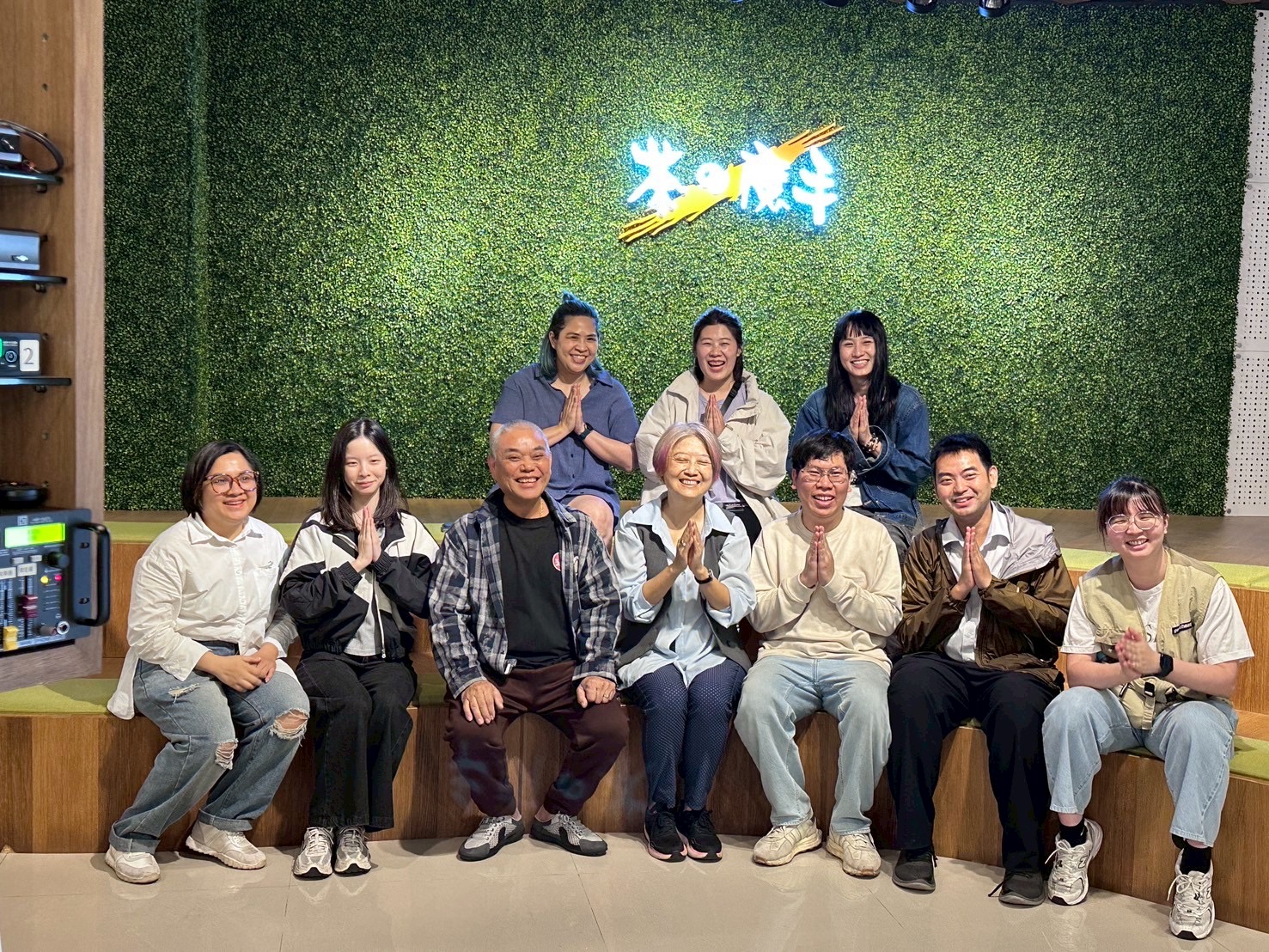
The tea farm we visited today was 茶魔手, a farm specializing in commercial tea. The manager presented us the tea plants will be handpicked and produced into varieties of tea at their own tea making facility where hygiene is highly emphasized in order to control the quality of the tea products. All process of tea making can be completed in one place starting from picking leaves, outdoor and indoor withering, oxidizing, frying and eventually squeezing the tea leaves into a ball shape and make it ready to be distributed.
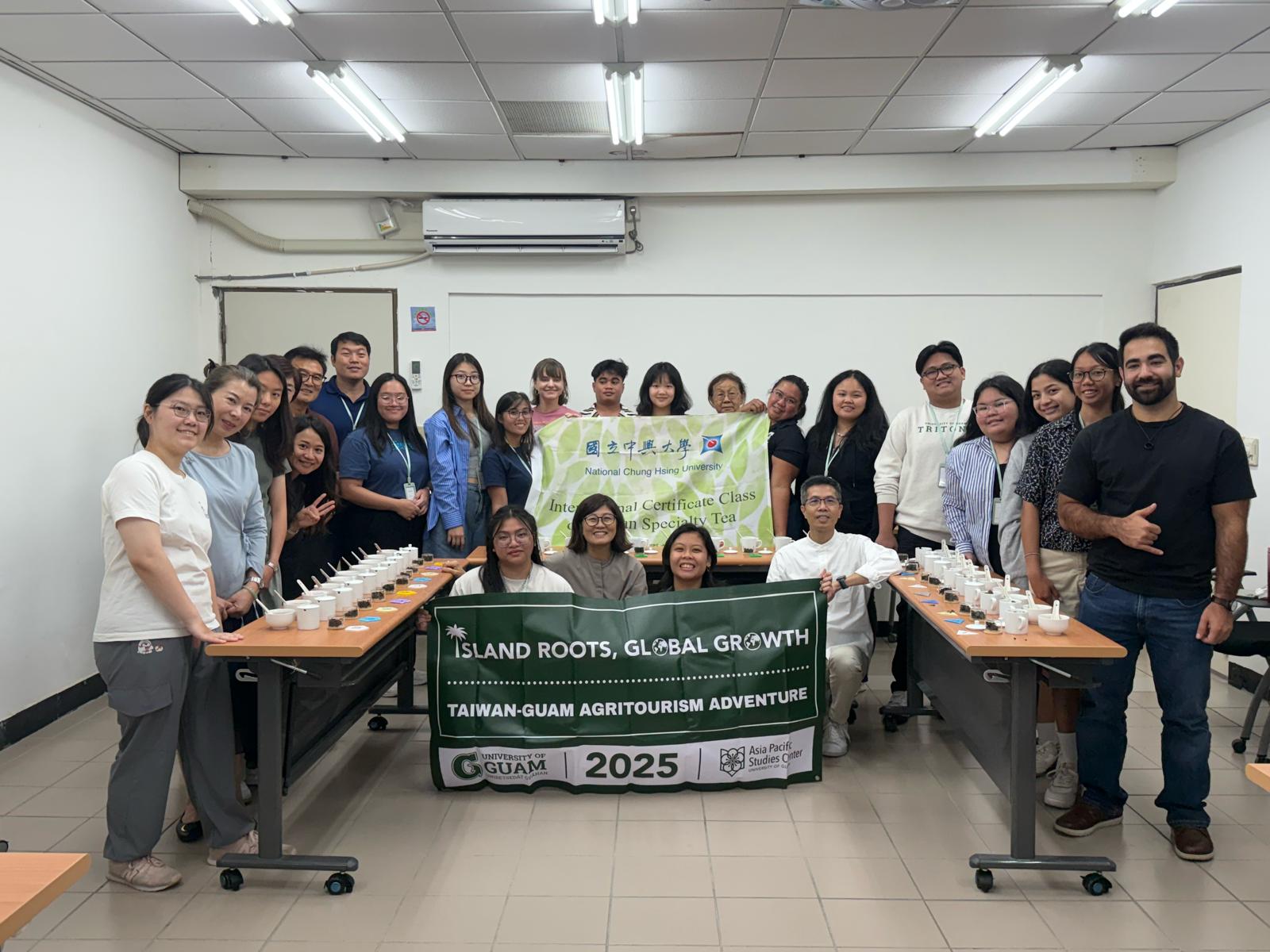 2025-NCHU-8-10115-001
2025-NCHU-8-10115-001
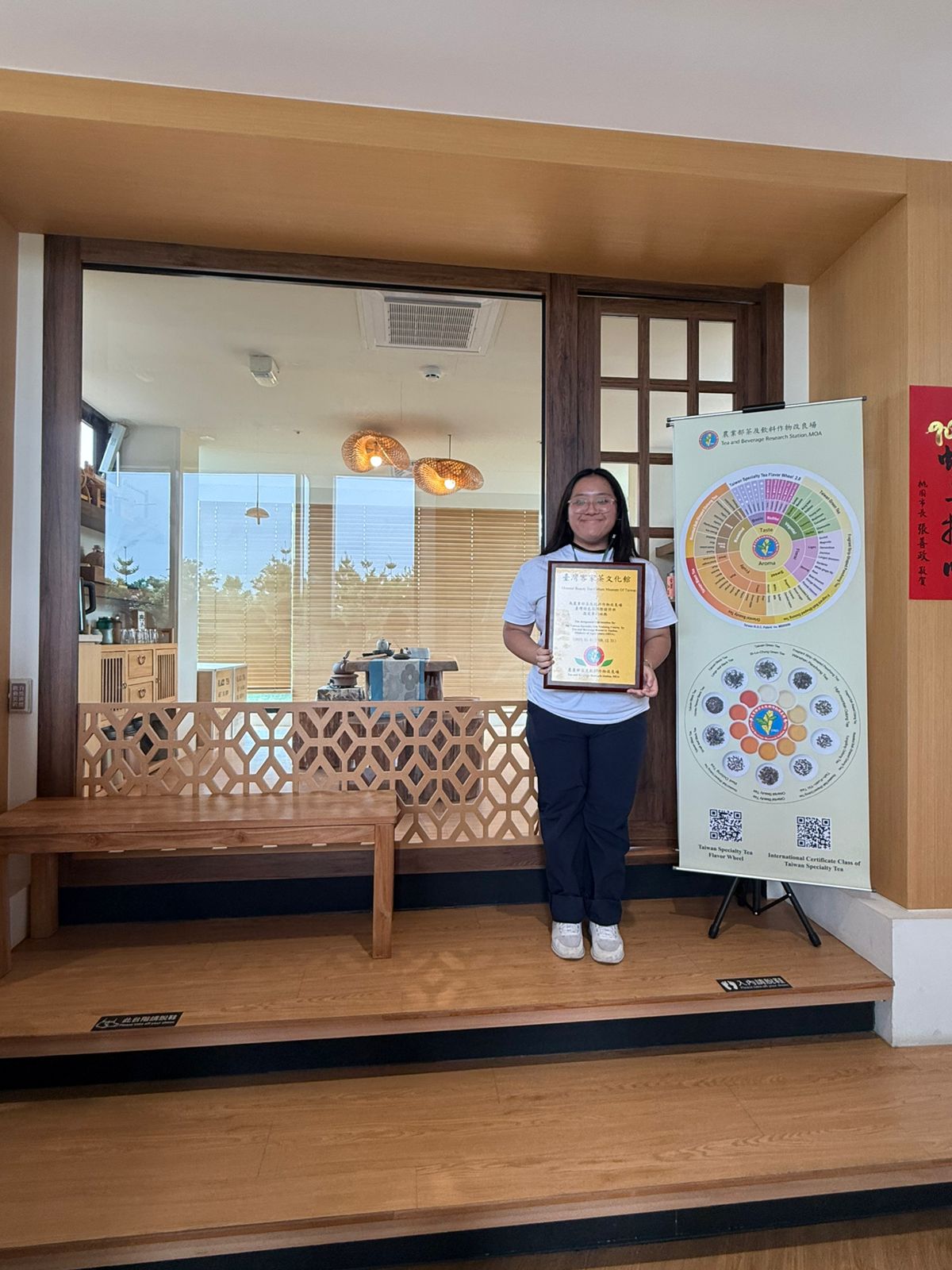 2025-NCHU-8-10115-001
2025-NCHU-8-10115-001
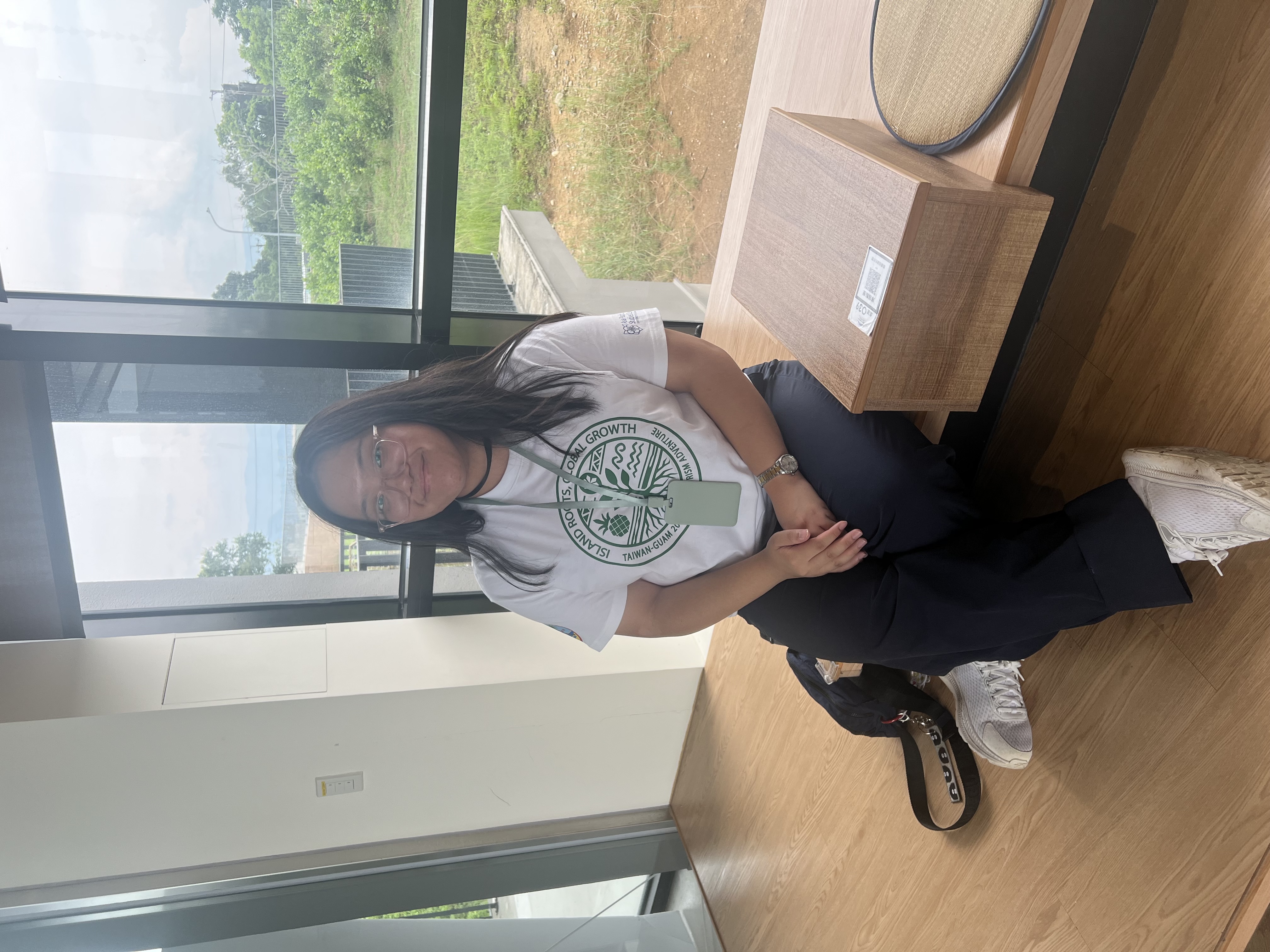 2025-NCHU-8-10115-001
2025-NCHU-8-10115-001
I enjoyed the tea cupping exercises as they helped apply my written knowledge. The kahoot was one of my favorite parts of the class along with the tea ceremony. I can leave the class confident knowing I can identify different types of tea based on looks and smell alone.
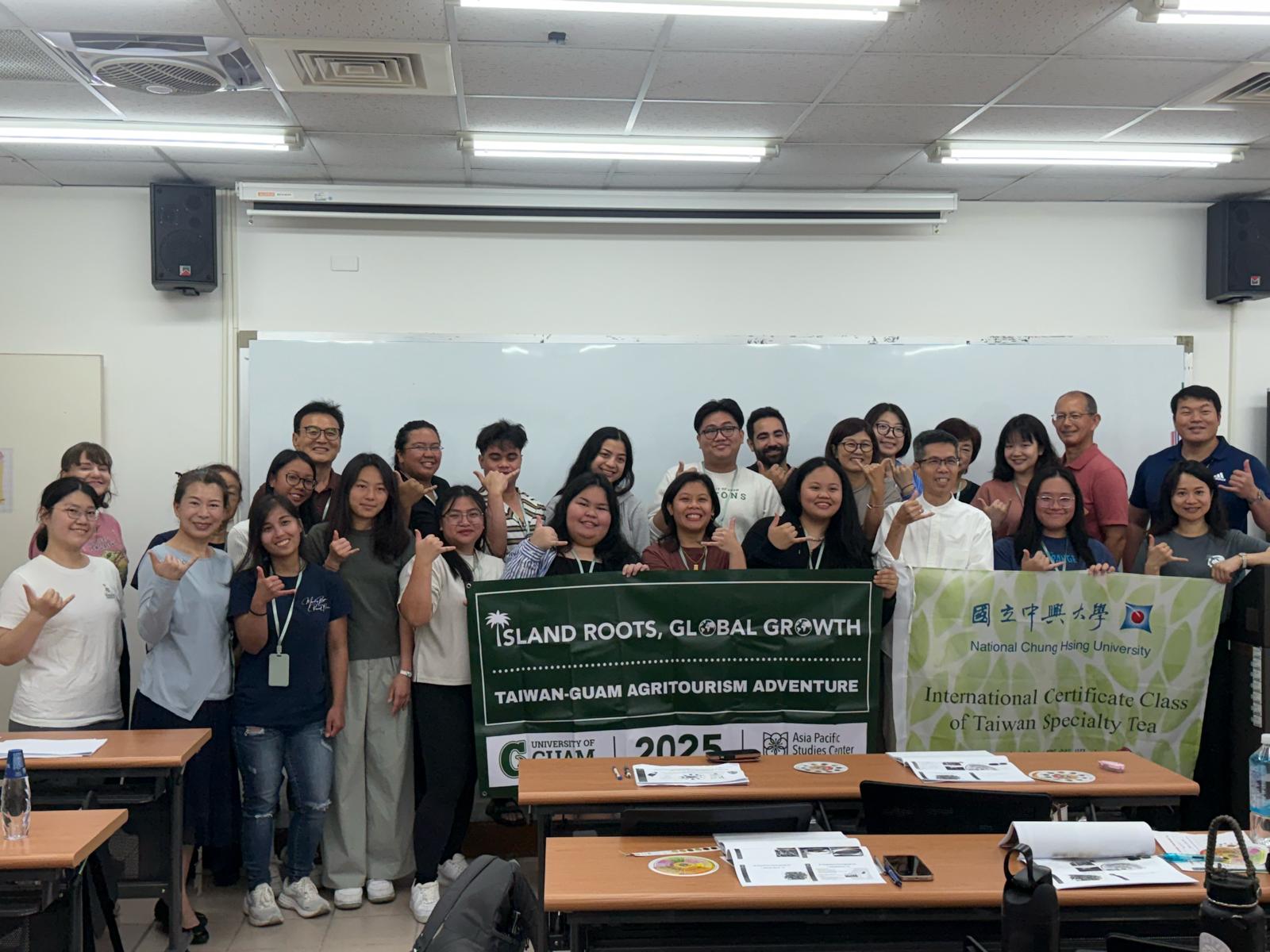 2025-NCHU-8-10121-001
2025-NCHU-8-10121-001
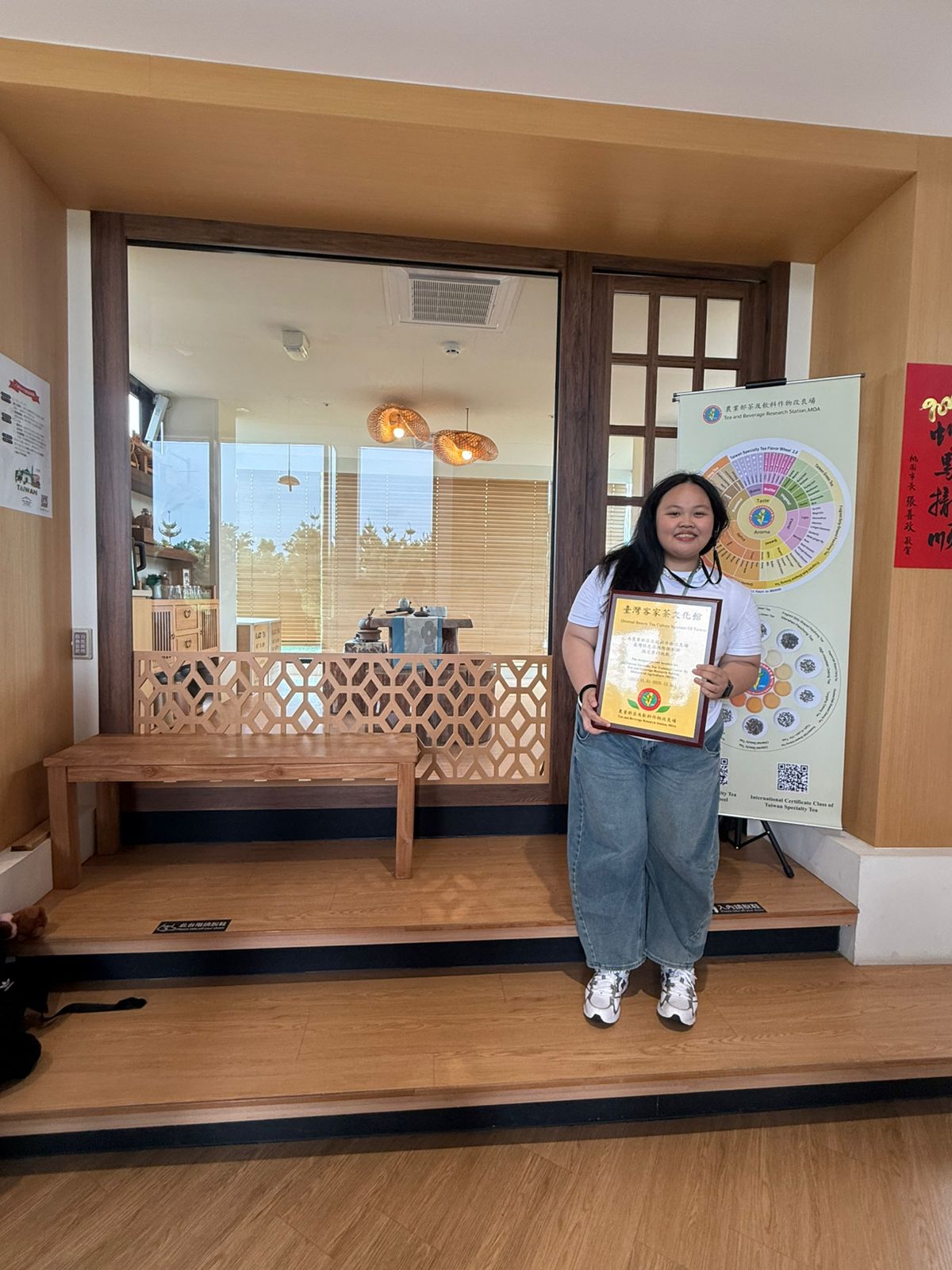 2025-NCHU-8-10121-001
2025-NCHU-8-10121-001
 2025-NCHU-8-10121-001
2025-NCHU-8-10121-001
I really enjoyed the specialty tea course because I got to learn another facet of Taiwan’s culture and acquire the skill to identify the ten teas Taiwan is known for.
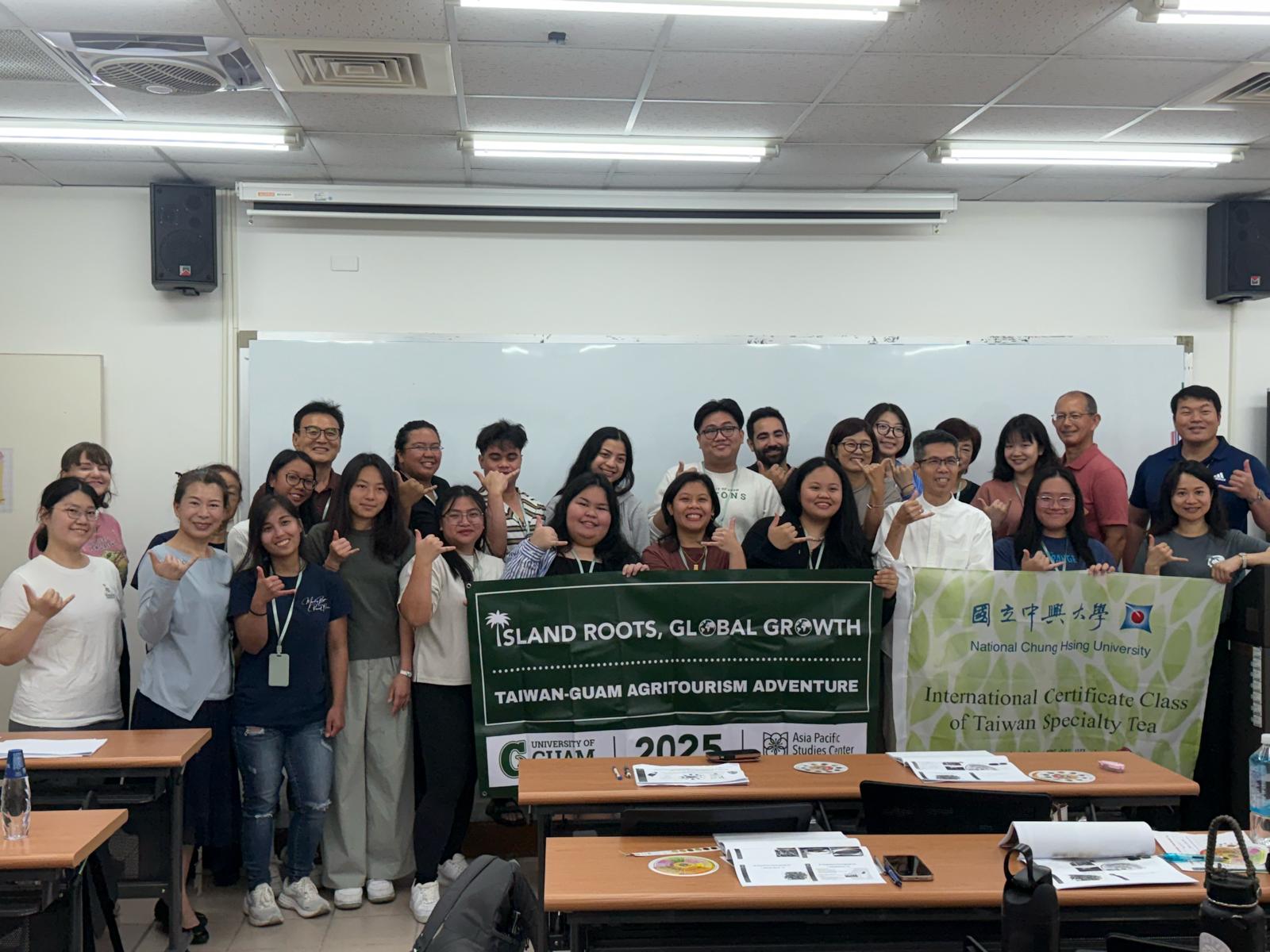 2025-NCHU-8-10123-001
2025-NCHU-8-10123-001
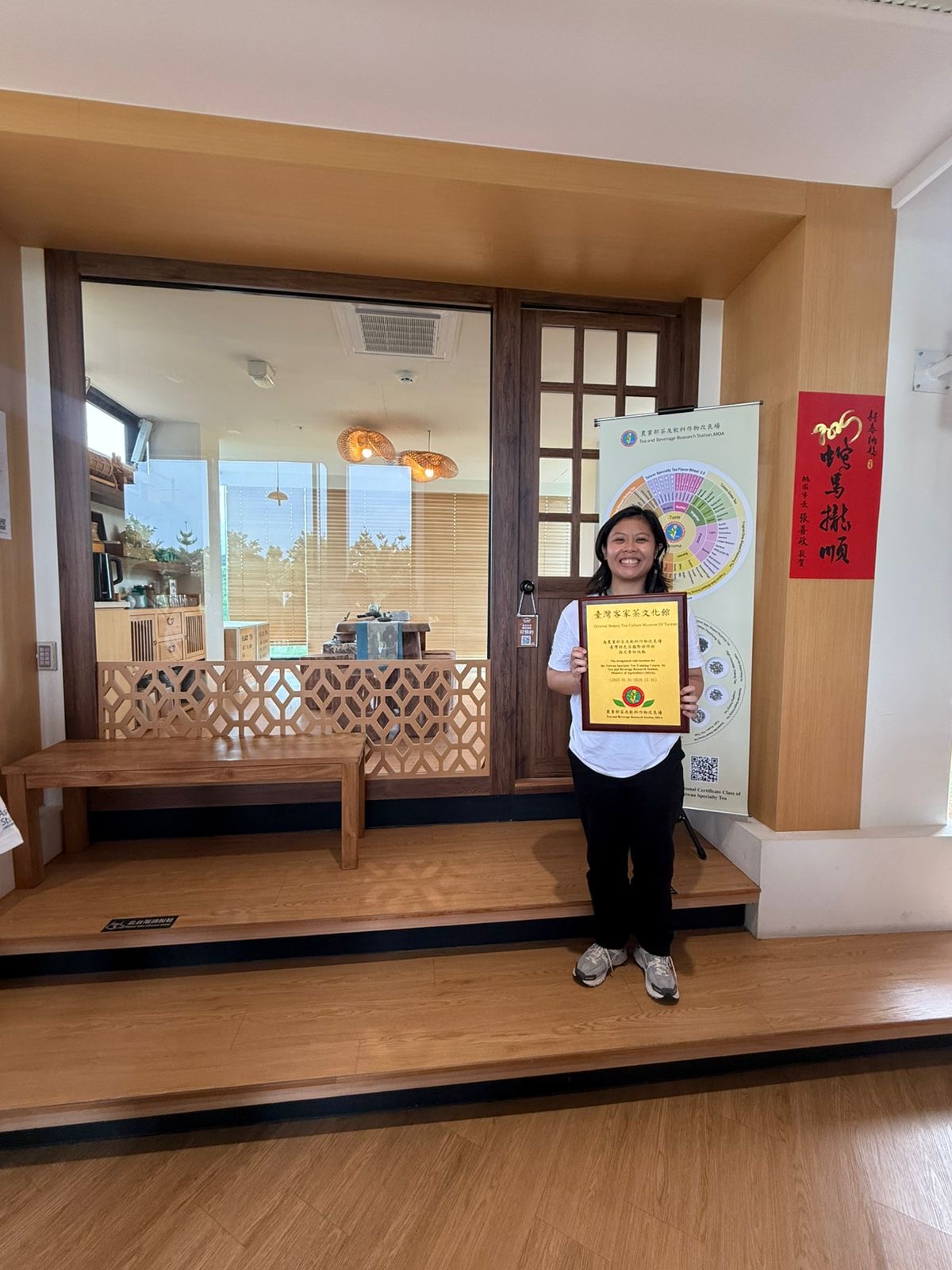 2025-NCHU-8-10123-001
2025-NCHU-8-10123-001
 2025-NCHU-8-10123-001
2025-NCHU-8-10123-001
Great hands-on cultural experience!
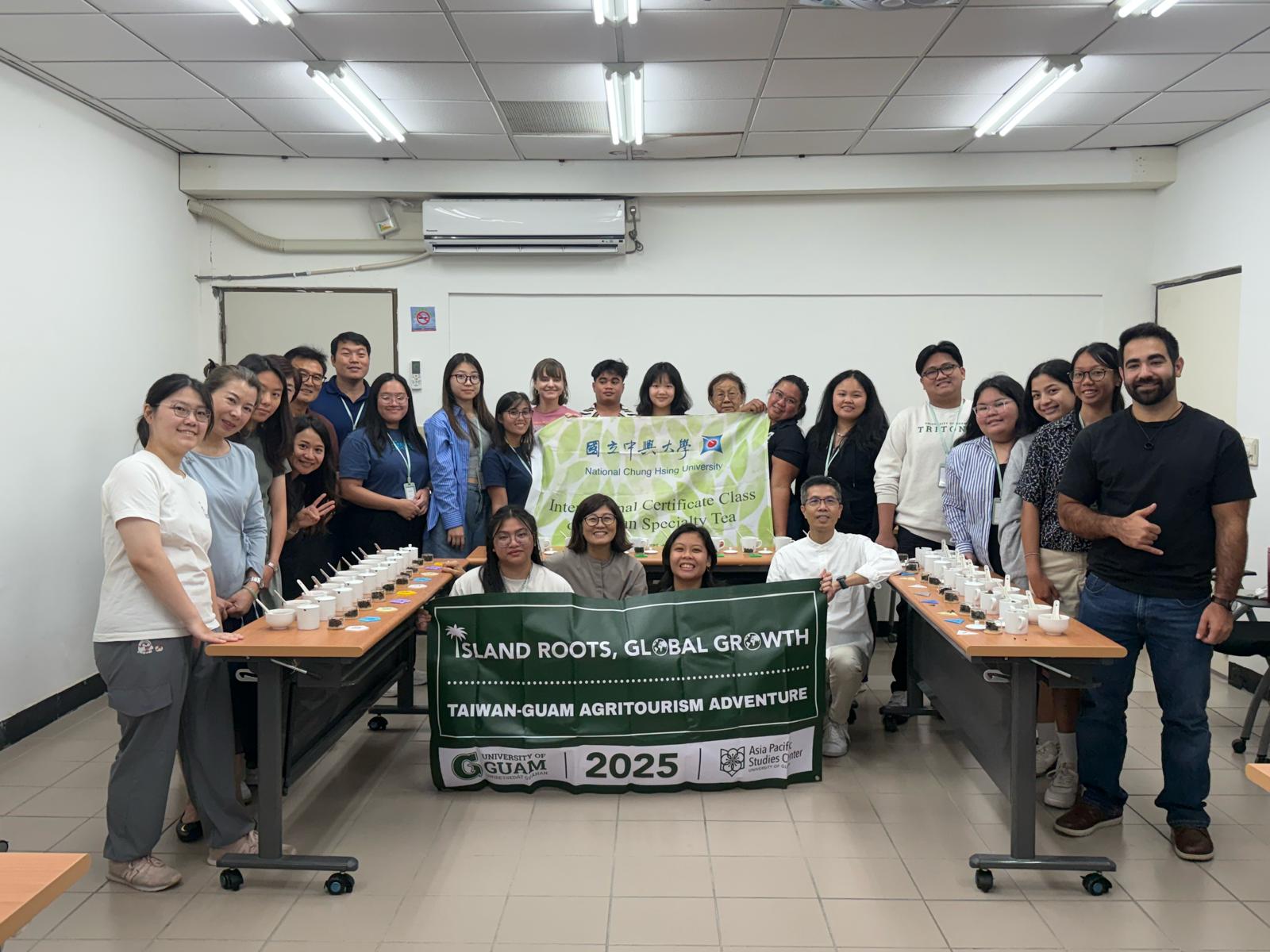 2025-NCHU-8-10125-001
2025-NCHU-8-10125-001
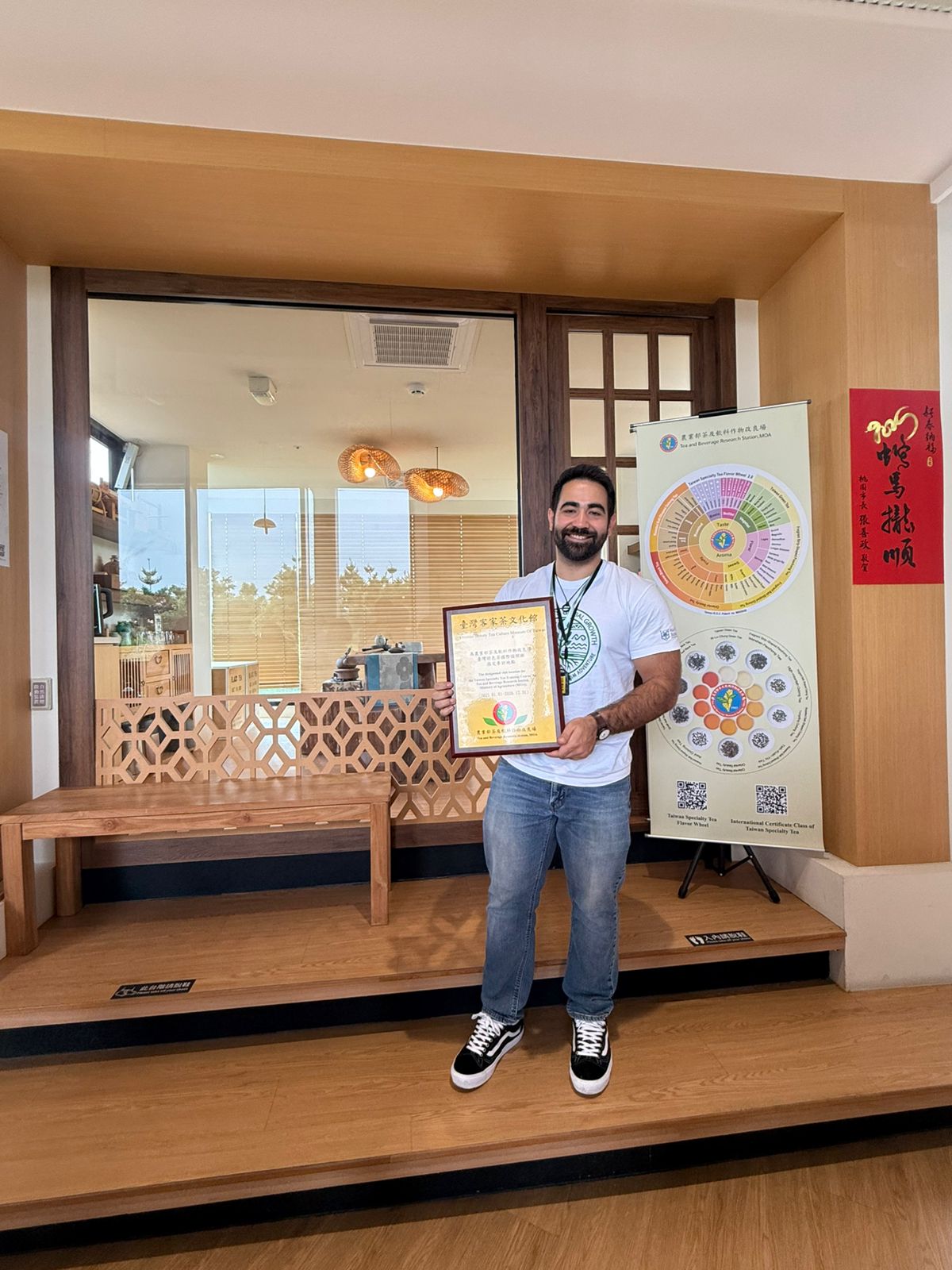 2025-NCHU-8-10125-001
2025-NCHU-8-10125-001
 2025-NCHU-8-10125-001
2025-NCHU-8-10125-001
The tea class was very easily digestible (pun intended) and enjoyable. I'm looking forward to being able to prove my tea expertise to others in Taiwan and back home. I hope to be able to take some of this experience and absorb it into my own business.
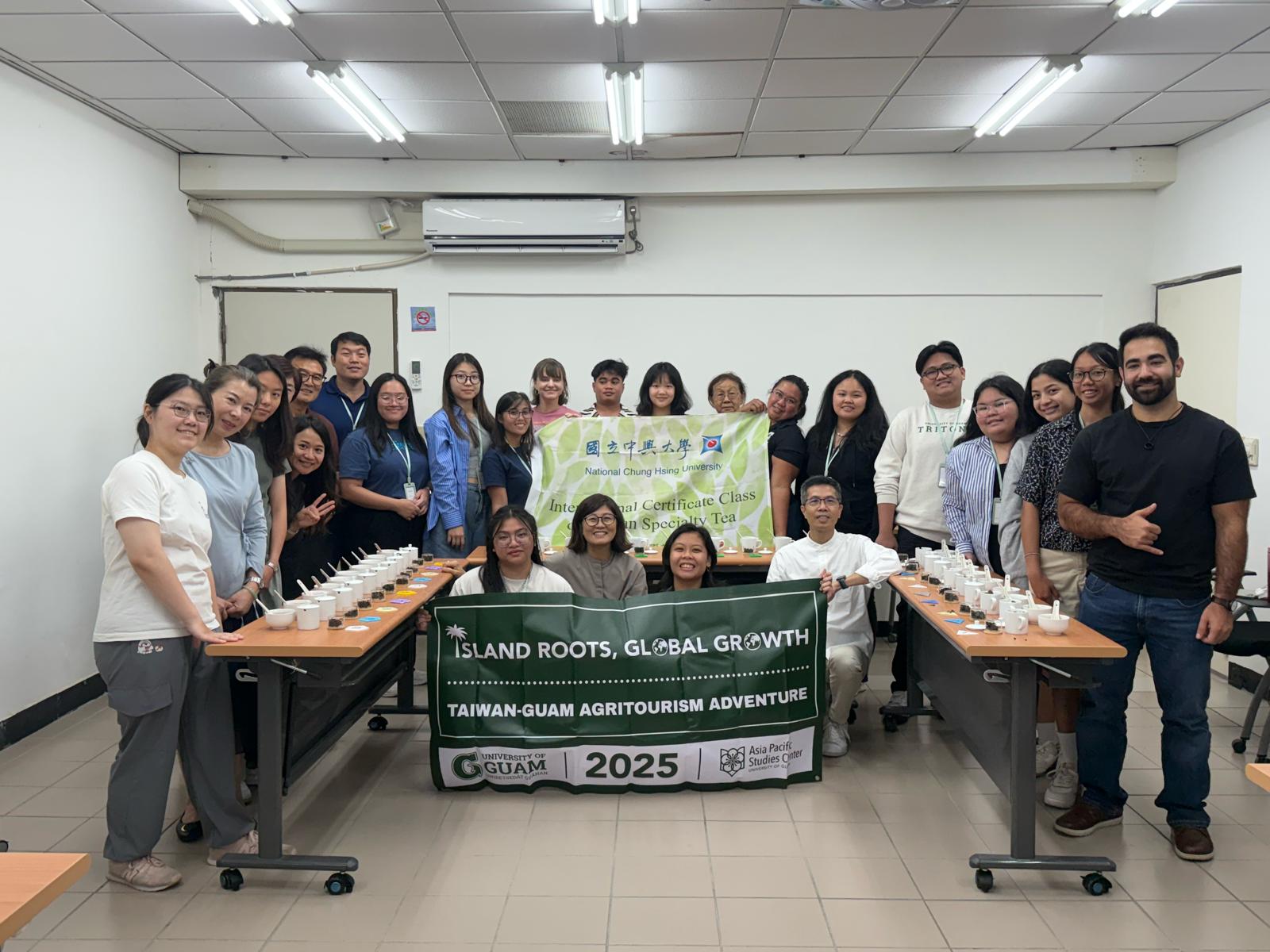 2025-NCHU-8-10127-001
2025-NCHU-8-10127-001
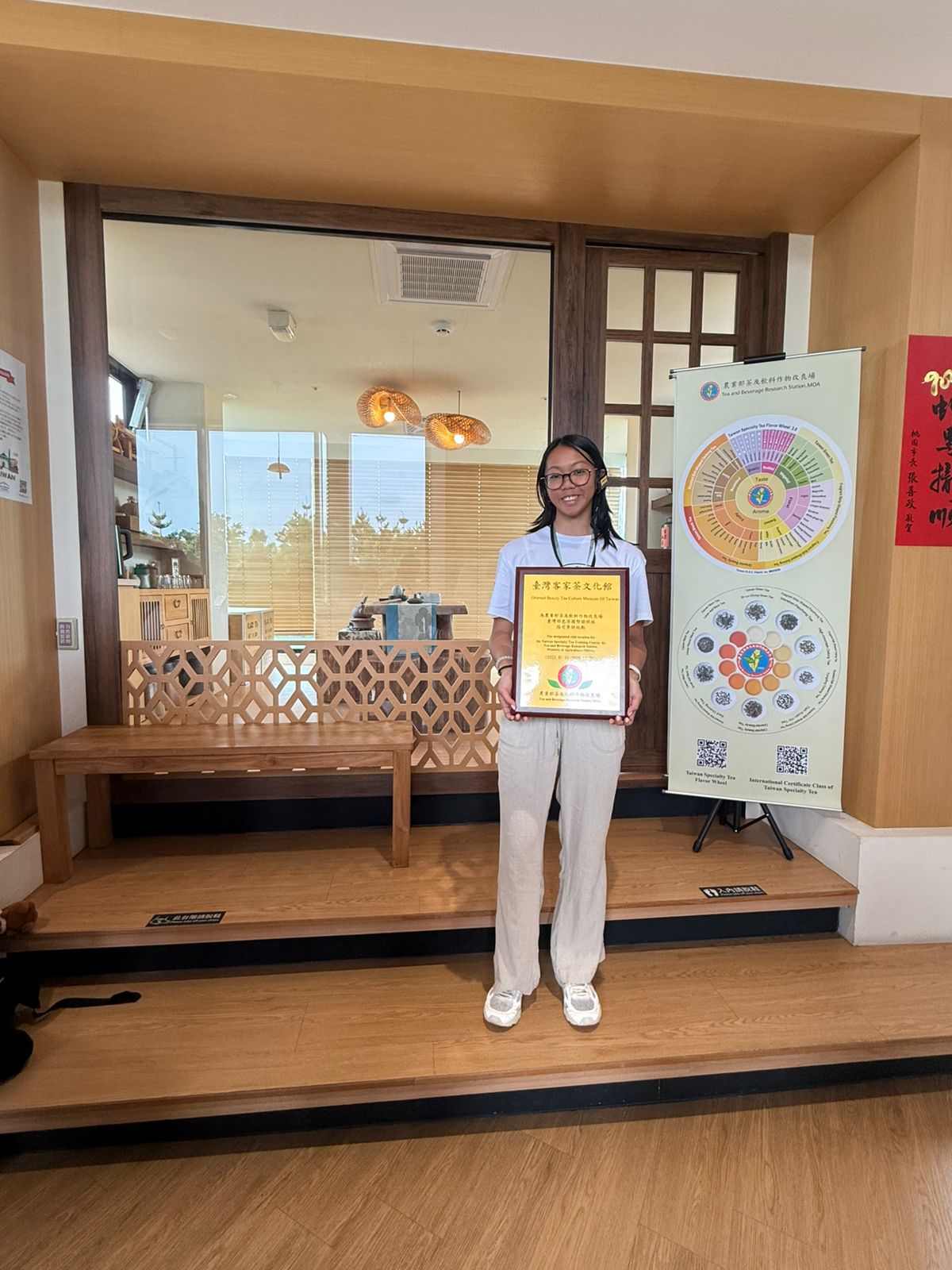 2025-NCHU-8-10127-001
2025-NCHU-8-10127-001
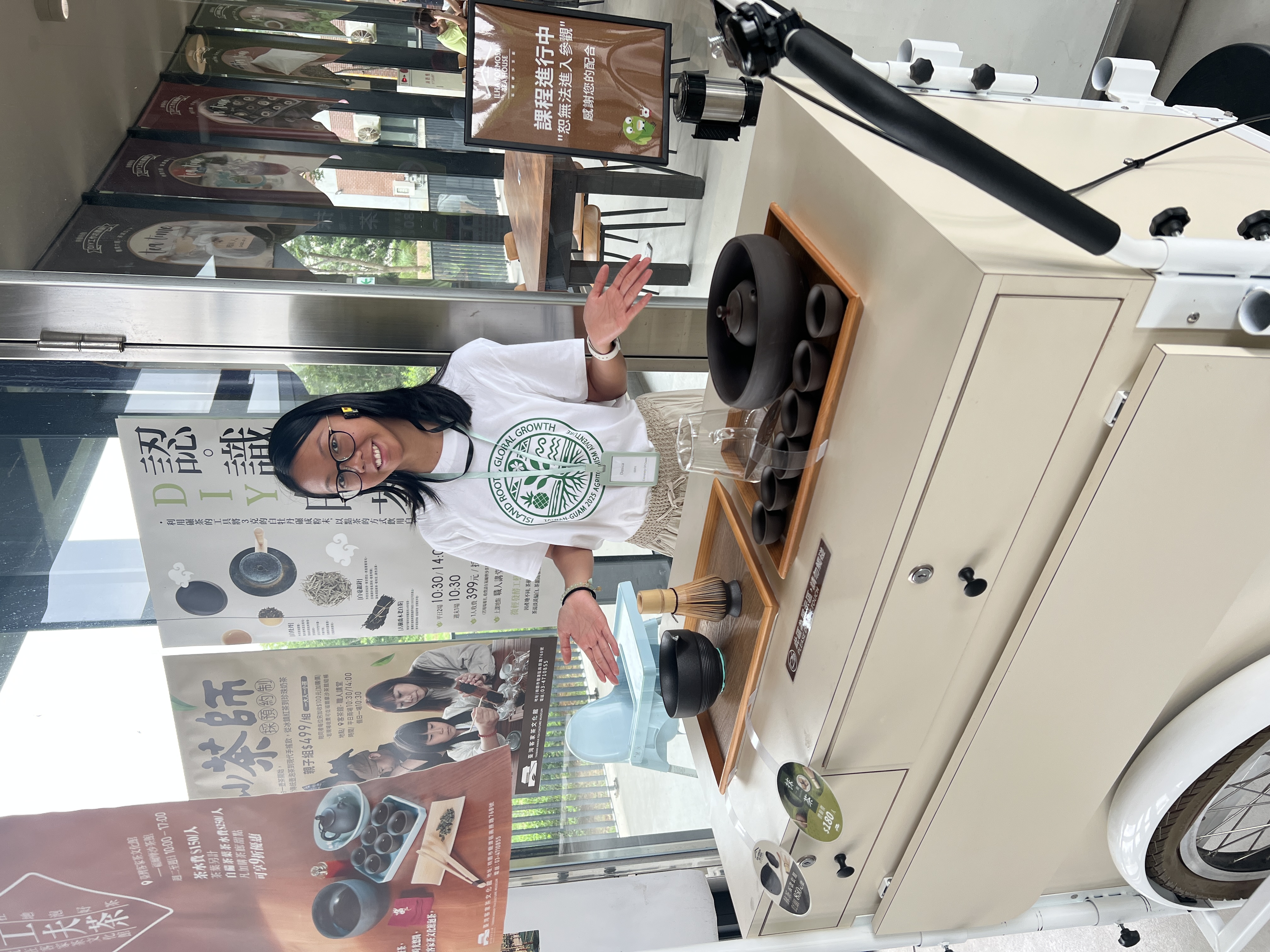 2025-NCHU-8-10127-001
2025-NCHU-8-10127-001
I am very grateful to have taken this fun and special certificate course. The lectures and activities have exponentially increased my knowledge, understanding and appreciation not just for tea, but also Taiwanese history, art, and culture. My favorite part was attempting to identify the various teas through multiple senses, especially the Oriental Beauty tea, which is unique to Taiwan.
 2025-NCHU-8-10128-001
2025-NCHU-8-10128-001
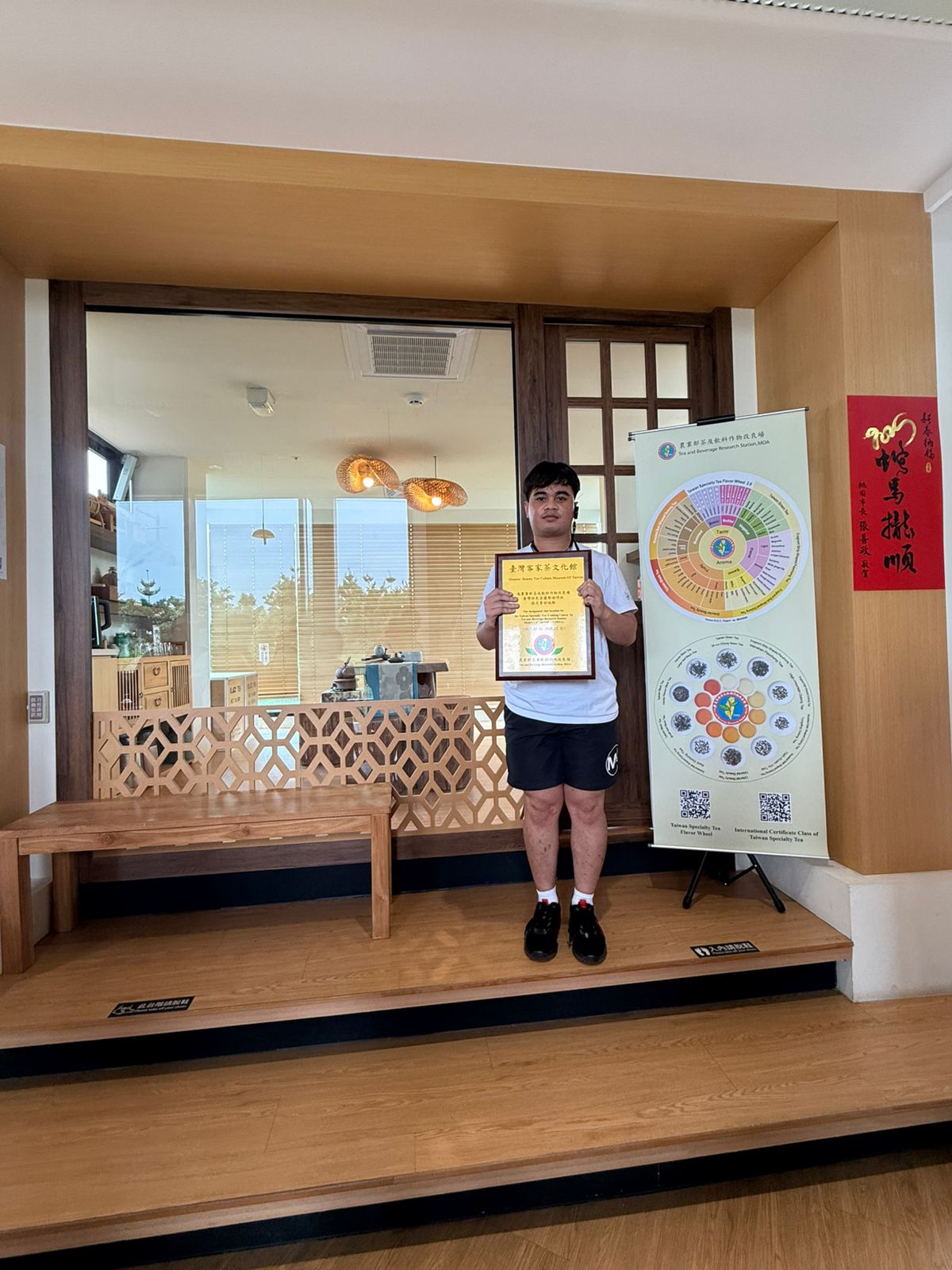 2025-NCHU-8-10128-001
2025-NCHU-8-10128-001
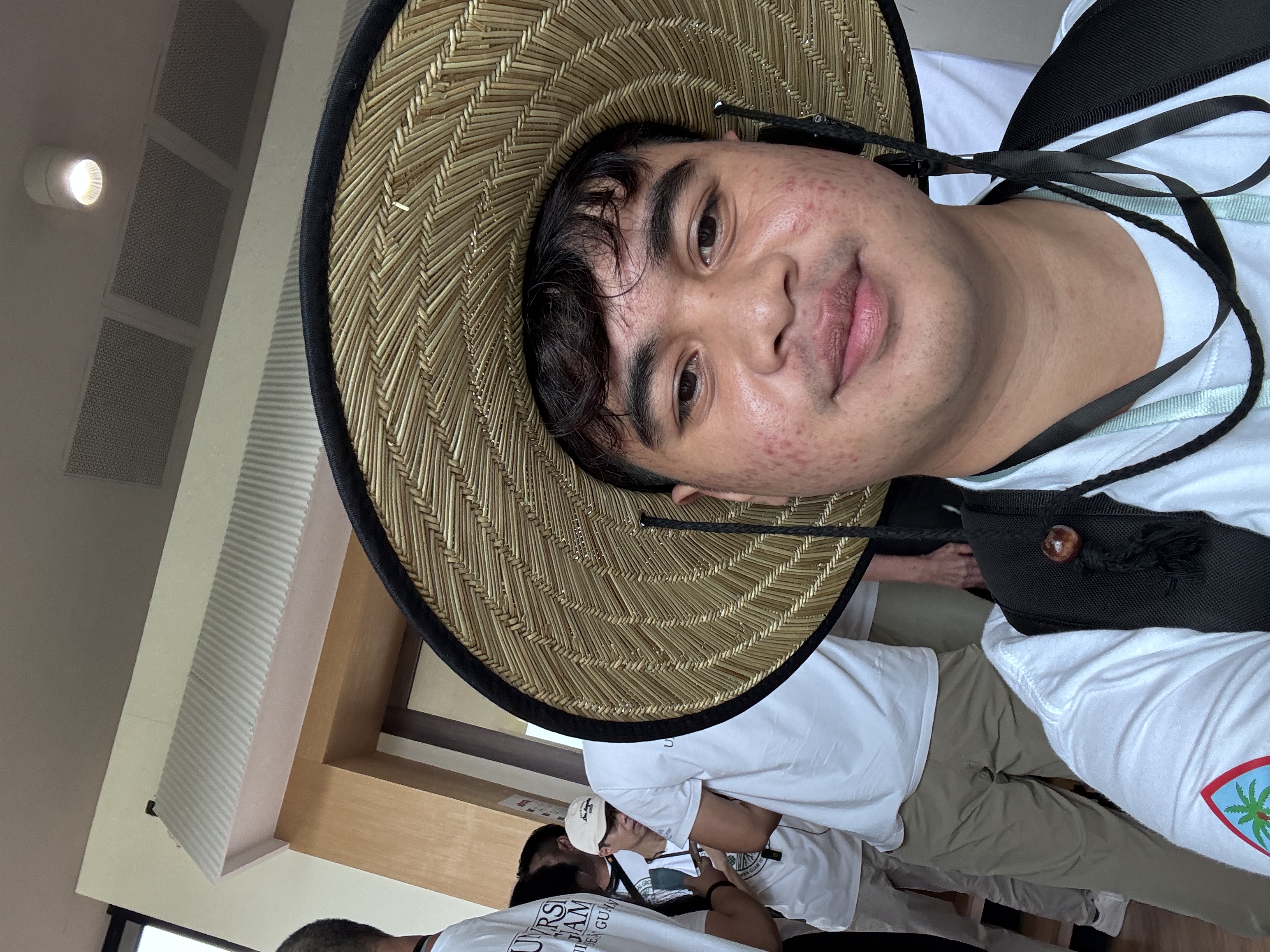 2025-NCHU-8-10128-001
2025-NCHU-8-10128-001
This picture highlights one of the most memorable moments from this class activity. It was fun learning about the different types of ten teas, especially as someone who comes from an island where we do not grow tea trees. Thank you, Mr. Alex, Dr. Kuan, and everyone else who gave me this incredible opportunity to experience such a once-in-a-lifetime event and to earn the International Certificate of Taiwan Specialty Tea.
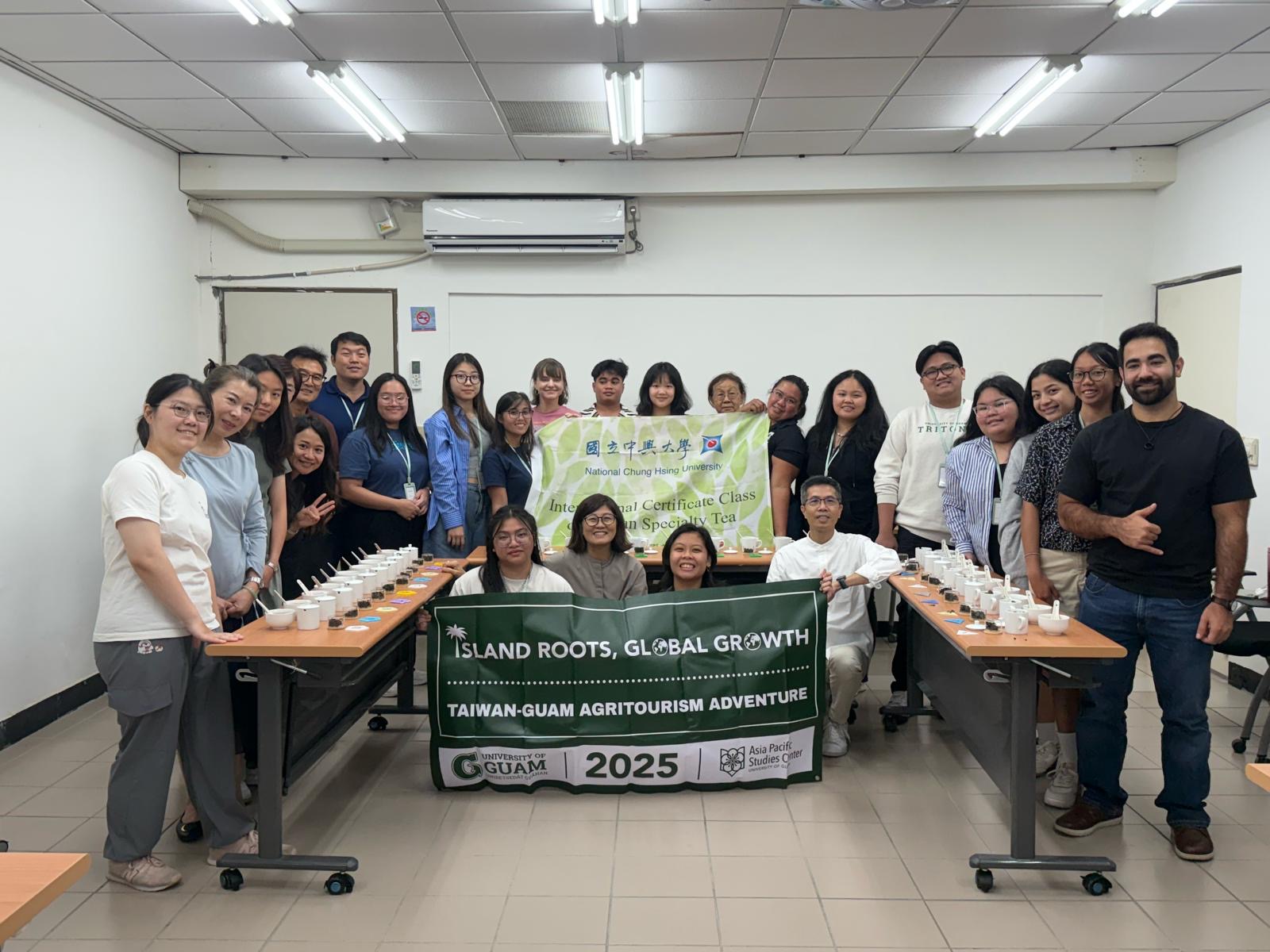 2025-NCHU-8-10126-001
2025-NCHU-8-10126-001
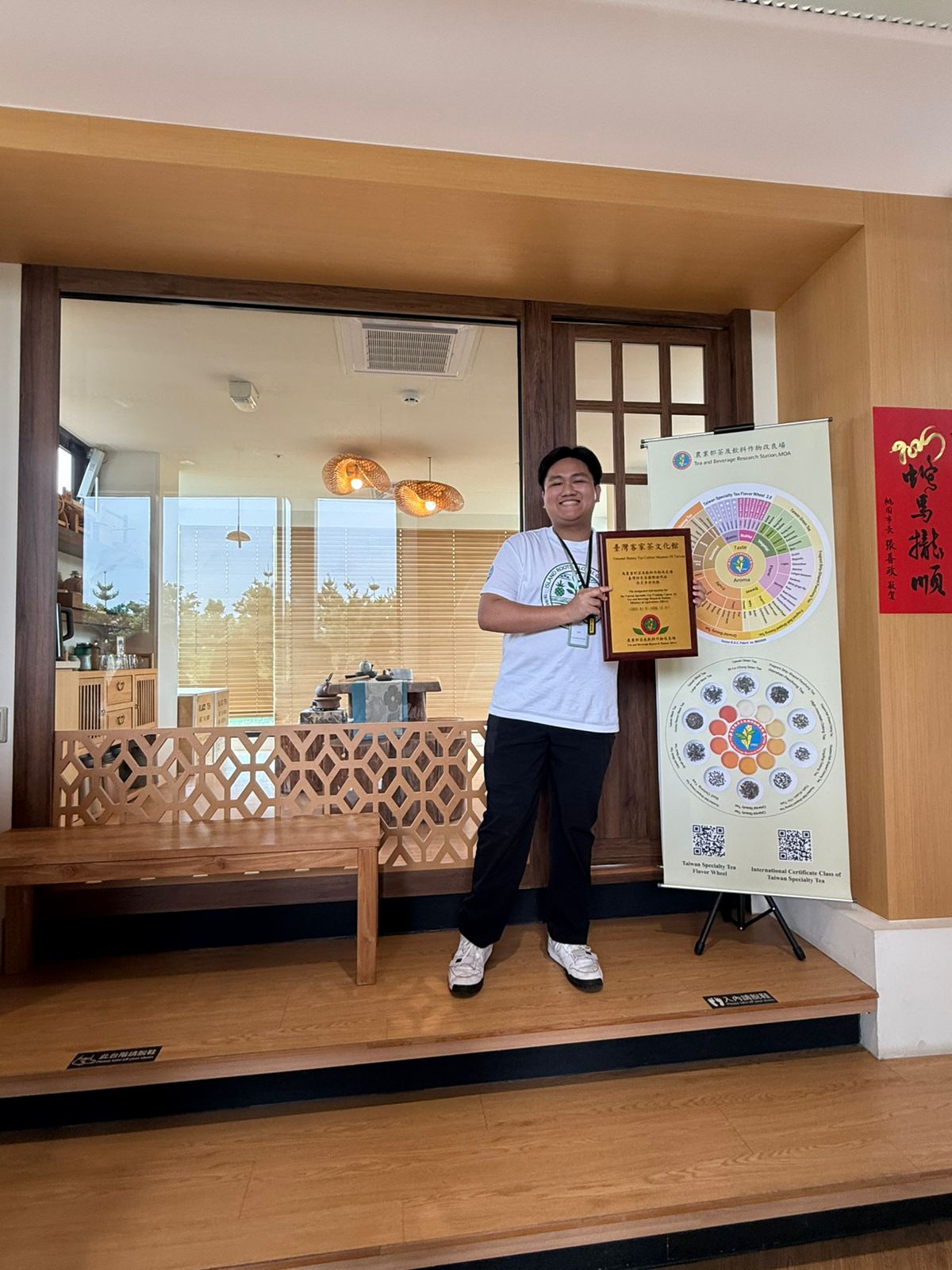 2025-NCHU-8-10126-001
2025-NCHU-8-10126-001
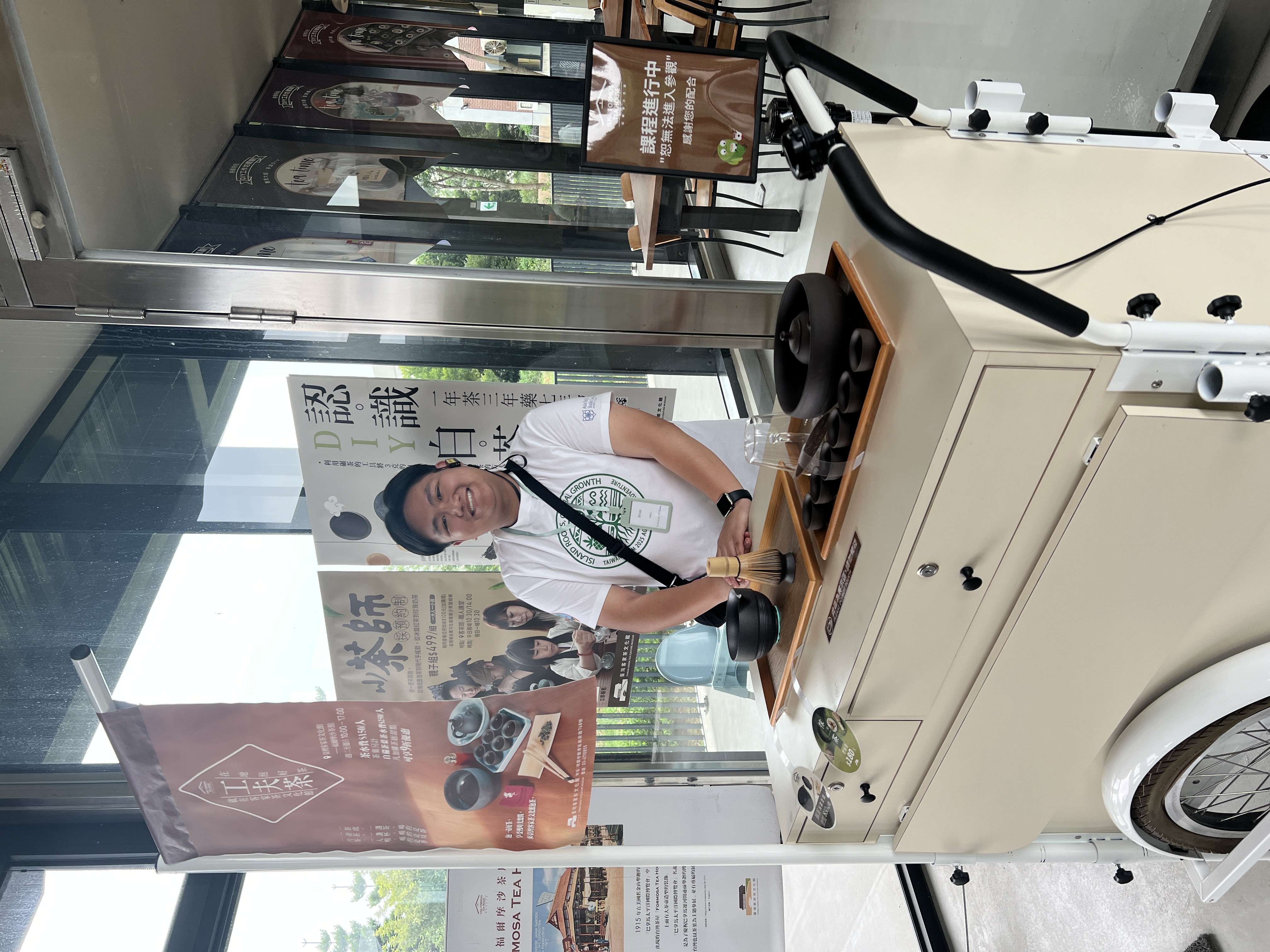 2025-NCHU-8-10126-001
2025-NCHU-8-10126-001
During the International Certificate Class of Taiwan Specialty Tea, I developed a better understanding of Taiwanese Tea and the cultural significance behind it. After taking this class, I know more about the different teas that are made, their origins, how they are prepared, and how to identify them with our sense of taste, sight, and smell. And the tea ceremony made me experience the culture first-hand and showed me how respectful and professional it is. More importantly, I now understand why tea is essential in many cultures today and why it is popular worldwide, as it does a great job of showcasing the traditions and values of a nation to other people.
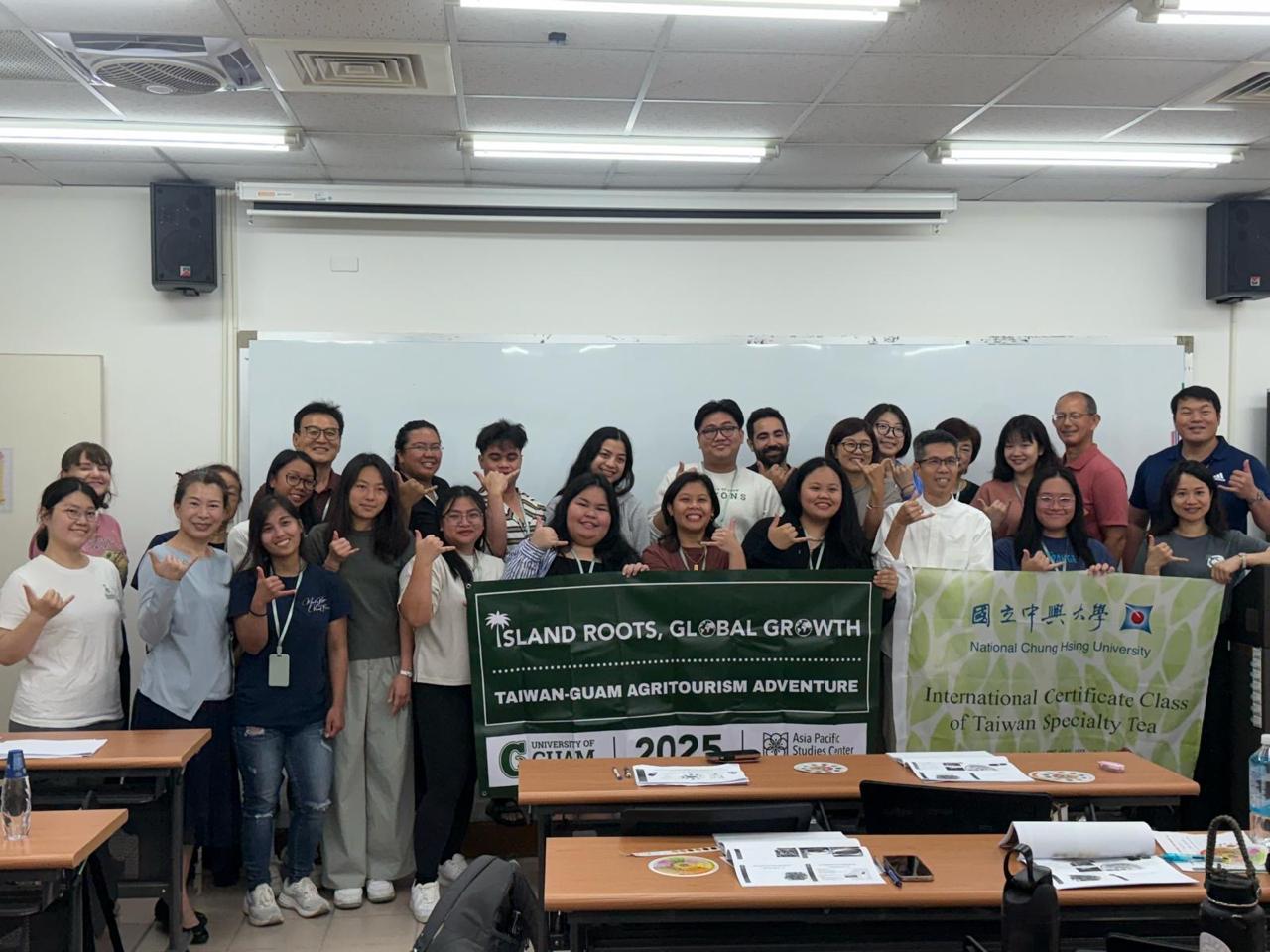 2025-NCHU-8-10140-001
2025-NCHU-8-10140-001
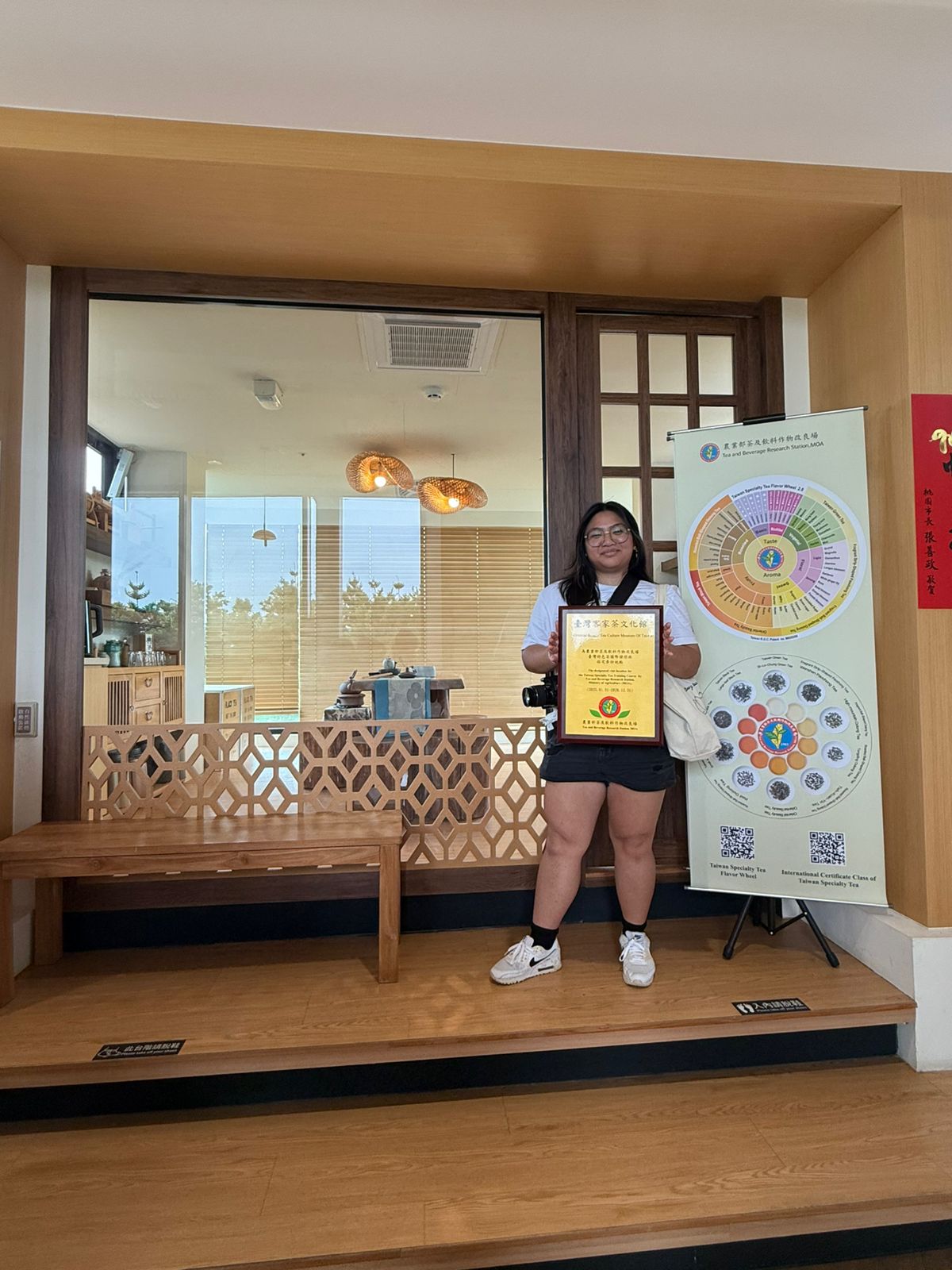 2025-NCHU-8-10140-001
2025-NCHU-8-10140-001
 2025-NCHU-8-10140-001
2025-NCHU-8-10140-001
The museum highlights the history and culture of Taiwanese tea, mostly Oriental Beauty. Oriental beauty is special that the flavor is achieved through a symbiotic relationship with leafhoppers. In completing the class, I have learned much more about tea than anticipated, including the culture, history, and tradition of tea. The class had theory and application components that helped to solidify practices and distinguishing between different teas as well as how they may differ in flavor even with the smallest difference in preparation. I have learned that there is only one tea tree and the differences in "true" tea is the oxidation amount. Tea is an art and a science. It is beautiful and requires much care for high quality.
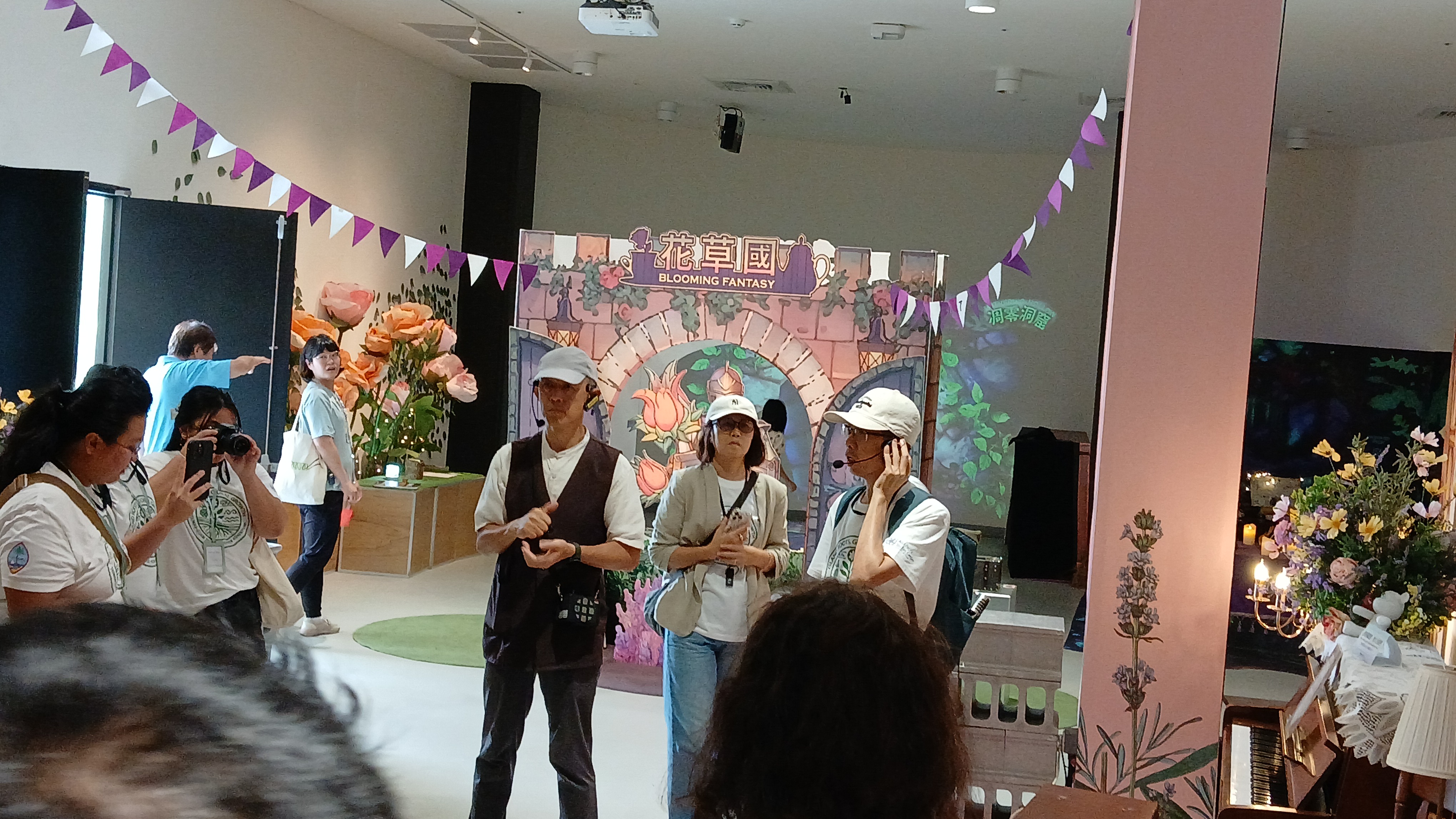 2025-NCHU-8-10148-001
2025-NCHU-8-10148-001
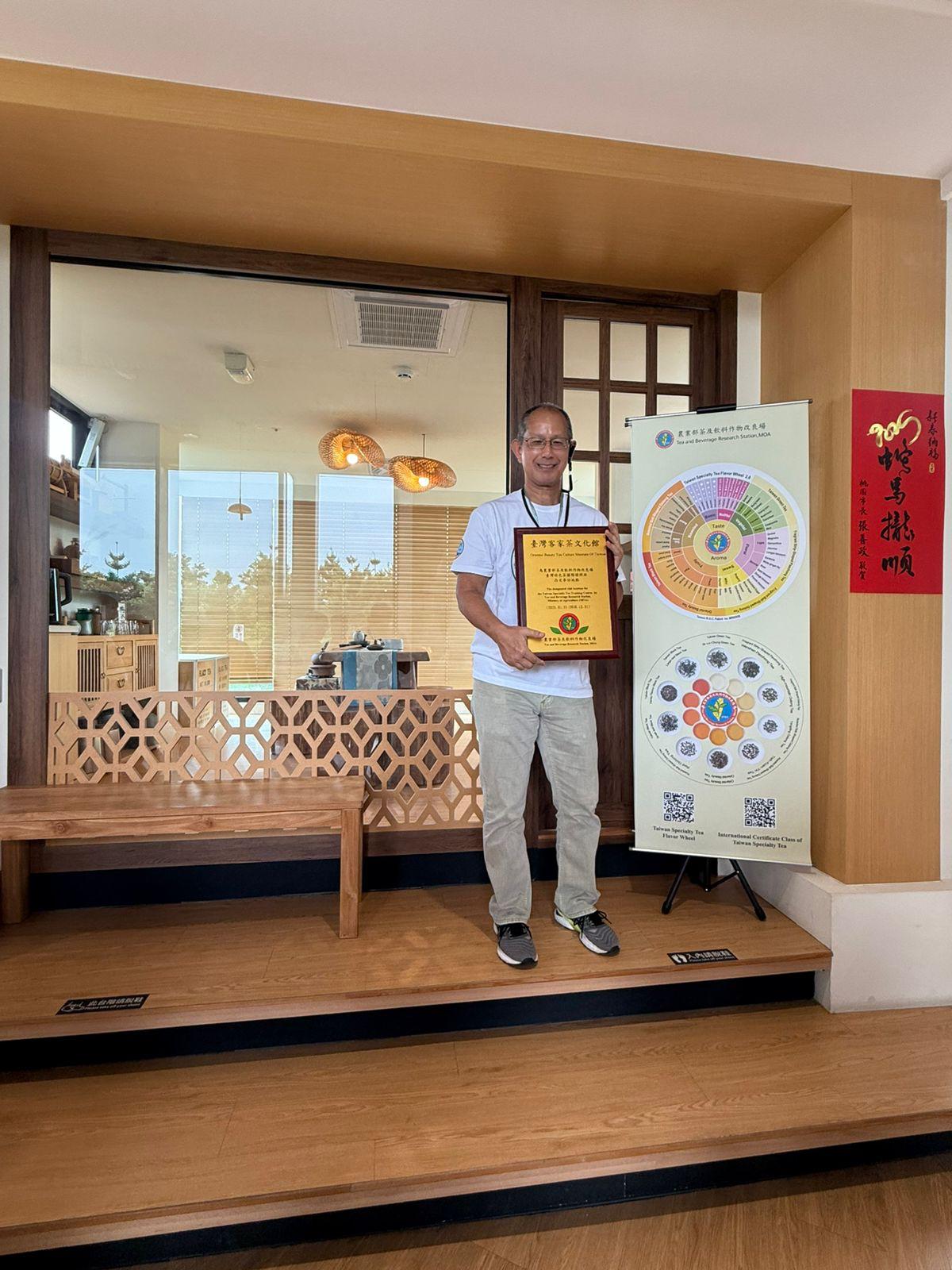 2025-NCHU-8-10148-001
2025-NCHU-8-10148-001
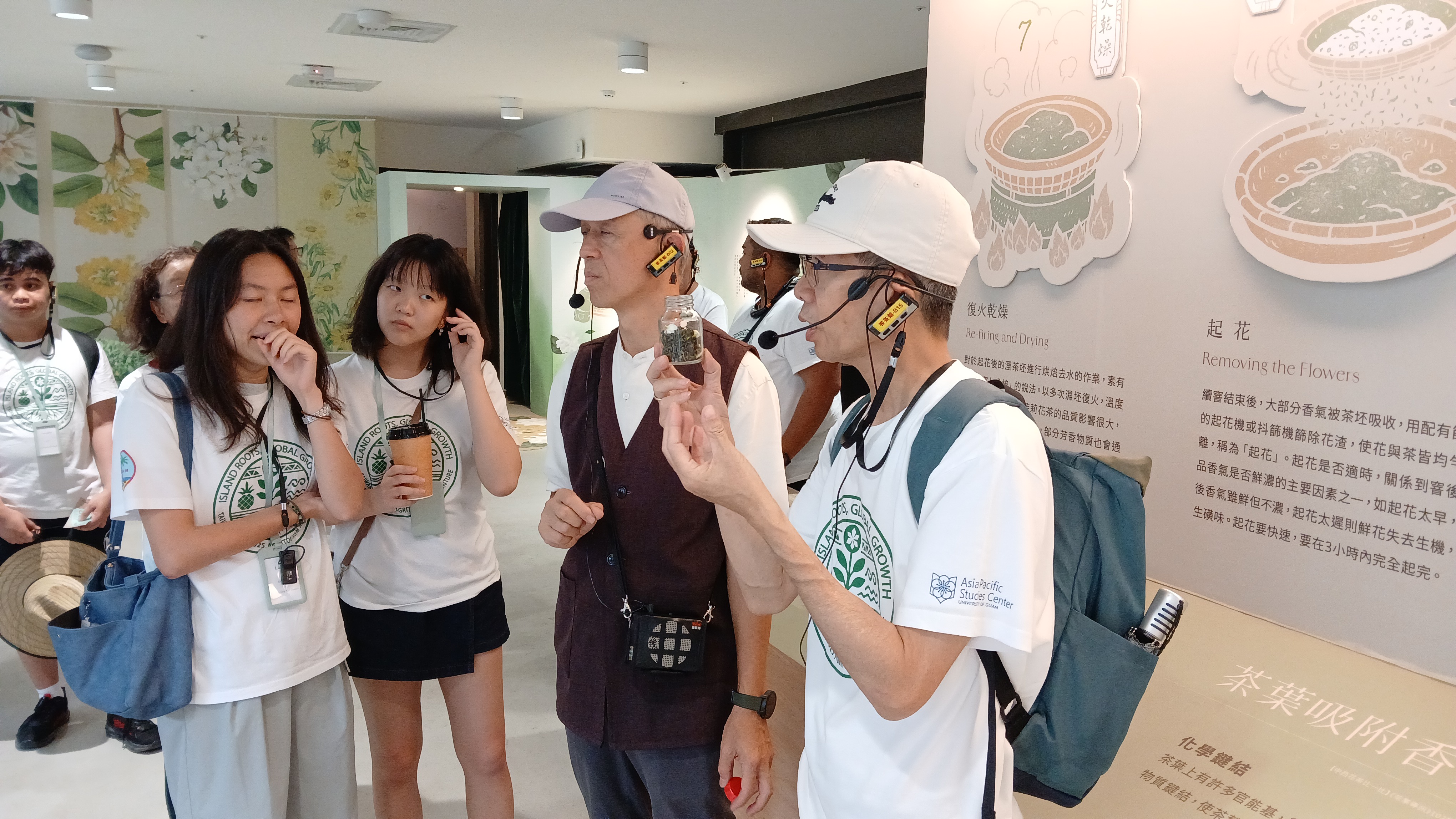 2025-NCHU-8-10148-001
2025-NCHU-8-10148-001
Instructor Alex was excellent! Learning about the history of tea culture was very helpful as a background to learning about the variety of teas produced in Taiwan.